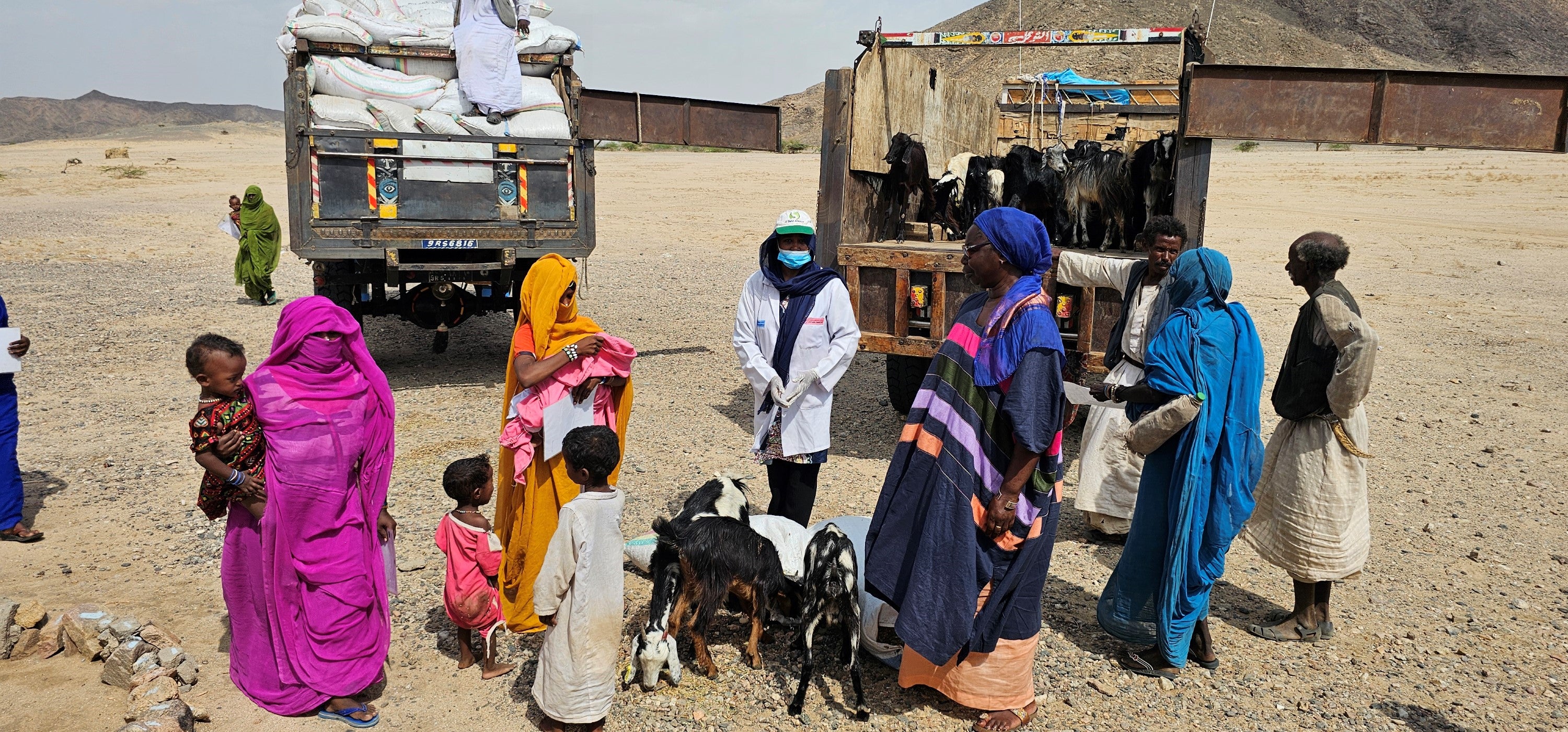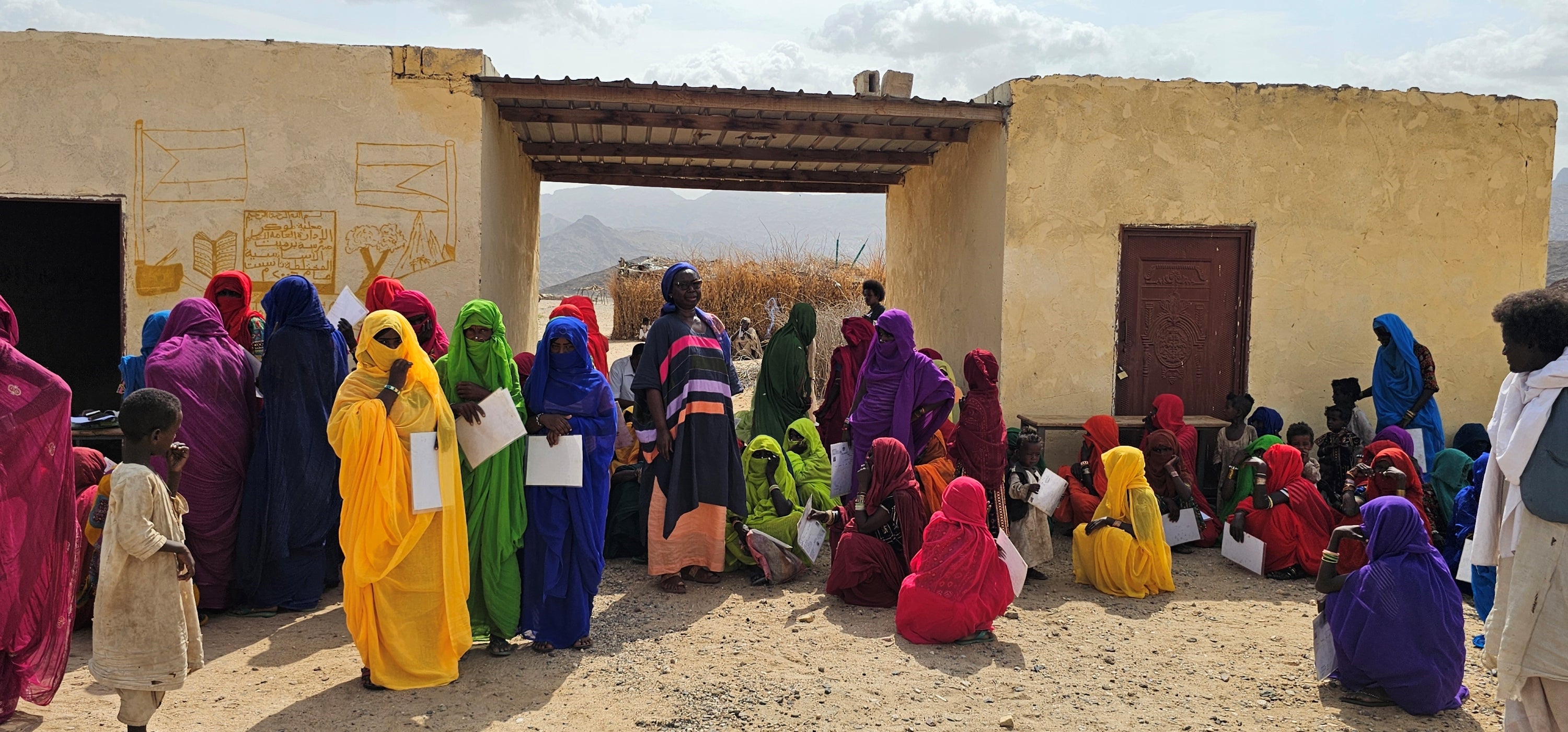Empowering Vulnerable Women in Sudan’s Red Sea State
Date:

Like many other regions in Sudan, the ongoing conflict between the Sudanese Armed Forces and Rapid Support Forces, the largest internal displacement in the world, has led to increasing violations against civilian communities, sexual violence, disease, and a looming famine warning. The crisis affects women differently due to societal roles and limited resources, particularly in women's access to essentials like food, water, and health care are particularly constrained by insecurity and depleted resources. the economic situation in the Ashit area of Red Sea State is dire. Due to widespread economic hardship, many families are struggling to make ends meet in their daily lives. To alleviate this hardship, UN Women Sudan, in partnership with the University of the Red Sea and with funding from the Swedish International Development Cooperation Agency (SIDA), distributed 600 goats to 200 women in the surrounding communities from the Bermait village of Ashit. This generous distribution is providing essential aid to vulnerable women, and those lacking a stable source of income a sustainable source of livelihood and nutrition.
Empowering Women Through Livestock
The goats were selected for their high productivity and adaptability to ensure their suitability for the Ashit environment. The University of the Red Sea, in collaboration with the Veterinary Department and the Ministry of Animal Resources meticulously assessed and prepared each goat to meet the highest standards of health. This careful selection process guarantees that the goats are capable of thriving under the care of their new owners. The goats will serve as a critical source of milk and its derivatives—such as Mish (yogurt) and ghee which will contribute to better health and nutritional status for families, particularly the elderly, pregnant and lactating women, and children.
A Special Visit

“Women who can sustain their livelihoods are better positioned to contribute to peacebuilding efforts, and their role is essential in fostering long-term stability in Sudan. Women economic empowerment is critical to prevent VAWG in a context where women and girls are abused to access basic needs, the best protection is empowerment. The Swedish International Development Cooperation Agency's support is crucial for fostering long-term stability and peacebuilding efforts in the region” said Adjaratou Ndiaye the UN Women Sudan Country Representative. She expressed her great satisfaction in meeting the women of Ashit and personally participating in the distribution of the goats.
Training and Support for Sustainable Success
The women who received the goats will also receive comprehensive follow-up training on goat-rearing practices and milk production. This training is crucial, as properly cared-for goats can produce up to 4.5 liters of milk daily. The project also includes the provision of feed and supplies to cover the goats' needs for the first two months, giving the women a strong start in their new endeavor. For the women, this initiative not only addresses their immediate needs but also aims to foster long-term economic independence by equipping them with both the livestock and the knowledge to manage it.